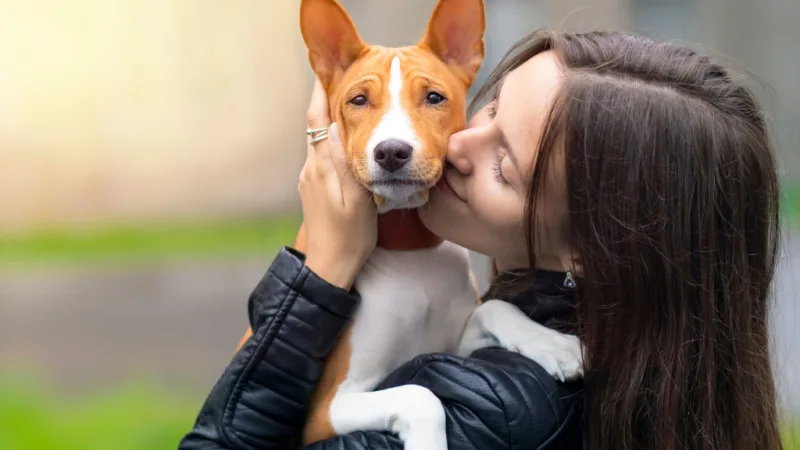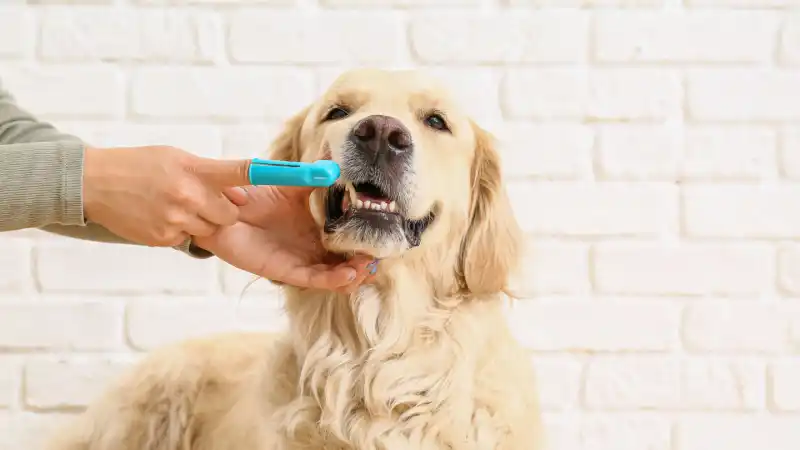Pet Anxiety Symptoms and How to Help
Do you have an anxious pet? Learn the causes and symptoms of pet anxiety and how to calm an anxious pet, including medication, exercise, and training.

Anxiety is a common struggle for many pets, and in the last few years, the cases have only increased as people and their pets have grappled with the realities of life during COVID.
In the last two years, dog separation anxiety has increased over 700% and fear of strangers saw a 295% increase, making it the leading cause of dog anxiety.
With so many new cases, it's important to learn about the signs of anxiety in pets and what you can do to help. Keep on reading to discover more about pet anxiety, the signs to look out for, and how you can help your furry friend feel calm and comfortable again.
What Causes Anxiety in Pets?
There are many types of anxiety that your pet may experience, and some are more common than others. For dogs, the most common cause of anxiety is being around strangers, while the most common cause of anxiety in cats is loud noises.
Your pet's anxiety is personal to them and can be caused by a traumatic event, fear, or even their age.
Other common causes of anxiety in pets include:
Separation from family
Other animals
New or novel experiences
Particular surfaces
Heights
Symptoms of Anxiety in Pets
The symptoms that your pet experiences will depend on what kind of animal you have, the type of anxiety they have, and how severe it is. The more severe your pet's anxiety, the more pronounced their symptoms will be.
Common signs of anxietyin dogs and cats include:
Defecating or urinating in the house or outside of the litter box
Increased respiratory rate, or panting in dogs
Dilation of the pupils
Tail flicking in cats
Avoiding eye contact
Pacing
Destructive behavior
Restlessness
Excessive barking or vocalizing
Aggression
5 Ways to Help an Anxious Pet
If your pet is diagnosed with anxiety, there are a variety of treatment options you can explore. Your vet will have the best understanding of your pet's current health and which treatment option will work best, so it's important to chat with them before starting any treatment plan.
Here are a few of the most common ways to help relieve your pet's anxiety:
1. Counter-Conditioning Training
Many types of anxiety are rooted in previous bad experiences with a certain sound or situation that caused fear in your pet. Lots of vets and trainers recommend using counter-conditioning training to help change your pet's response when presented with their trigger.
Counter-conditioning training can also involve desensitizing your pet to what scares them. You can work with a professional trainer to slowly expose your pet to triggers and offer rewards and positive reinforcement for every step they take towards coping with their fear.
Over time, this training can change the way your pet responds to things that scare them and help them better manage their anxiety.
2. Anxiety Medication
Depending on the severity of your pet's anxiety, your vet may recommend medication to help manage anxiety symptoms. Many treatment plans will involve medication treatment in combination with some kind of behavior modification or therapy.
Your veterinarian may prescribe an antidepressant or selective serotonin reuptake inhibitor (SSRI) to help manage your pet's anxiety in the long-term. For anxiety that's situational like thunderstorm or firework-induced anxiety, they may prescribe a shorter-acting medication like benzodiazepine.
3. Increase in Exercise
For some pets, anxiety is a result of excess energy that's pent-up throughout the day. If your pet doesn't get enough physical exercise throughout the day, they can channel that energy and frustration into anxious or destructive behaviors.
Set aside dedicated time every day to exercise with your pet. This may mean a short walk, going for a run through the neighborhood, or playing with toys inside depending on your pet and their personality.
Exercise is beneficial for all areas of your pet's health, but always check in with your vet before you change their routine. Too much exercise can have consequences for some animals, so it's always a good idea to check if your pet is healthy enough for increased physical exercise.
4. Create a Safe Space for Your Pet
Some anxiety can be induced by your pet's environment, so it's important to create a space where they can feel safe and happy in their home.
For cats, vertical space is key. If you have multiple pets in your home, your cat may feel trapped or anxious in a room with another pet if they feel they have no escape route. Try adding cat furniture around your home, and giving your cat plenty of places to run and hide if they need to.
It's also vital to give your cat a space that's their own and that other pets in the house can't access. This can mean blocking off the upstairs with a baby gate or latching a specific room so only your cat can fit through.
If your pet struggles with loud noises or seeing strangers from the window, consider closing the curtains to block their view of outside until they can calm down. You can also put on music or other calming, distracting sounds to drown out the loud noises from outside.
The important thing is that you create a space in your home where your pet feels safe and secure, whatever that means for them.
5. Give Your Pet More Enrichment
Just like physical exercise, your pet can get anxious if they haven't had enough mental enrichment in their day. This is especially true of high-energy breeds that love having a job to do.
There are a variety of enrichment activities you can do with your pet, as well as options to give them for when you're not home. Puzzle toys like slow feeder bowls, Kongs, and other treat toys are great for keeping your pet calm and distracted while you're away.
Lick mats are another great option for lowering your pet's anxiety. Licking is a naturally calming behavior for dogs, and a lick mat doubles as a distraction. You can spread on your pup's favorite treat and even freeze it to make it last longer.
For cats, having cat furniture like scratching posts or window perches are also excellent options for enrichment.
Does Your Pet Struggle with Anxiety?
Anxiety can be a struggle for many pets and their owners, but there are lots of ways you can help alleviate some of their symptoms. If you suspect that your pet is dealing with anxiety, contact your veterinarian right away. They can help you create a treatment plan that's right for your pet and their unique needs.
Take some of the stress out of pet ownership with Accident & Illness Coverage from AKC Pet Insurance (underwritten by Independence American Insurance Company). Our pet insurance plans are designed to be there when you need them, allowing you to focus more on the health of your pet and less on costly veterinary bills. Click here for a quote today!

Richard has shared his life with pets since childhood, and currently has a rescue cat and dog. He works with veterinarians and pet businesses to improve their content. To find out more, please visit his [website](https://richardrowlands.com/).
READ MORE ARTICLES

